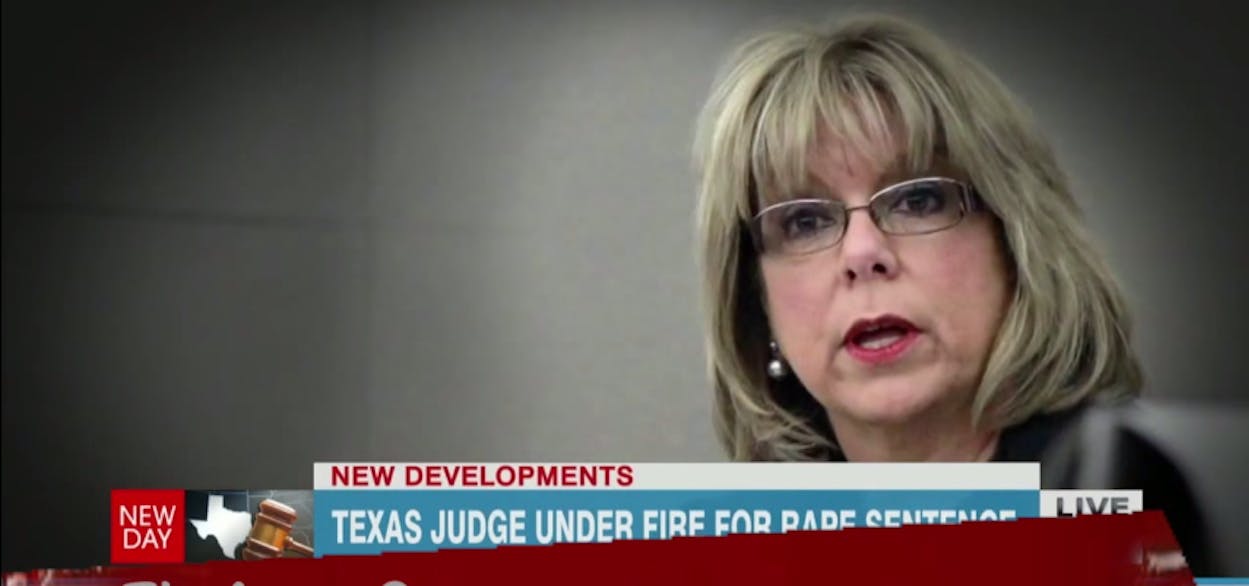In April 2014, a Dallas-area man named Sir Young pled guilty to the 2011 rape of a fourteen-year-old girl. His sentence, though, didn’t seem to reflect the seriousness with which we typically regard rape convictions, particularly when a child is involved: state District Judge Jeanine Howard, when sentencing Young, gave him a 45-day sentence, five years probation, and 250 hours of community service (to be served at a rape crisis center).
More disturbing than the sentence, which judges typically have a great deal of leeway in determining, were statements that Howard made about the sentence to the Dallas Morning News:
Howard said she made her decision for several reasons, including: The girl had texted Young asking him to spend time with her; the girl had agreed to have sex with him but just didn’t want to at school; medical records show the girl had three sexual partners and had given birth to a baby; and Young was barely 18 at the time.
“She wasn’t the victim she claimed to be,” Howard said. “He is not your typical sex offender.”
It’s hard to know exactly what a “typical sex offender” is, of course. With statistics showing that one in six women in the U.S. will be the victim of sexual assault in her lifetime, one would have to expect that the range of perpetrators is wide and varied. But Young is a sex offender, because he had sex with someone who was unable to legally consent. It doesn’t matter if she’d had sex with other people before, texted her rapist before the encounter, or expressed a willingness to have sex with him under other circumstances.
A panel from the State Commission on Judicial Conduct weighed in on Howard’s statements and sentencing, and found them worthy of a formal, public reprimand. As KXAN reports:
The commission wrote that the judge’s comment “undermined the public’s confidence in her impartiality and independence by defending her rulings in the press, giving rise to a legitimate concern that she would not be fair or impartial in other sexual assault cases.”
Another judge took over Young’s case following Howard’s comments, and imposed stricter probation rules.
Howard could ask the chief justice of the Supreme Court of Texas to review the commission’s decision to publicly reprimand her. The commission also ordered the judge to undergo four hours of education with a mentor.
It’s worth noting that the commission’s reprimand was for the fact that she opted to go to the press to defend her ruling, rather than the sentence itself. That’s probably wise—justice isn’t always best administered by imposing the harshest of punishments, and that’s especially true when the convicted person is the age that Sir Young was at the time he committed his crime. Had Howard not gone to the press to accuse the young teenager of being something other than “the victim that she claimed to be” and naming circumstances that don’t mitigate Young’s culpability in the crime, it would be easier to trust that Howard had no strong opinion on the legitimacy of sexual assault and rape accusations. As it is, though, she’s been formally reprimanded for undermining her own ability to be taken as a fair arbiter.








